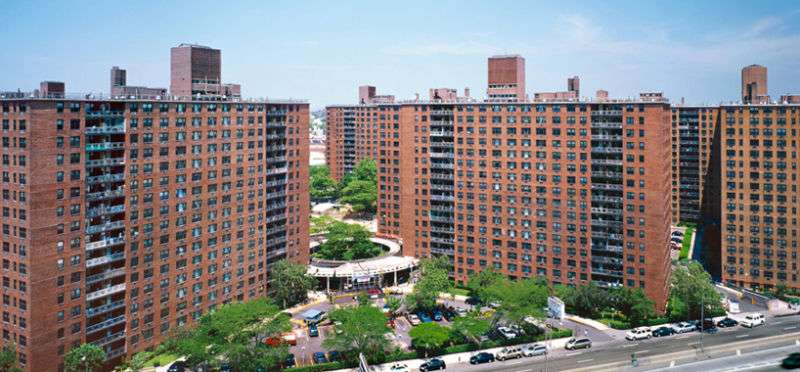Big-City Mayors Think They Can Mandate Their Way to Affordable Housing
60% of mayors in expensive cities favor requiring developers "to include more affordable housing in new projects even if doing so deters some new development."

If ever you were wondering why big American cities are governed so badly, take a gander at Boston University's Menino Survey of 89 U.S. mayors, including 63 from the 275 cities with populations of at least 100,000 (key findings here; full report here).
There are many depressing results to contemplate. For instance, mayors rightly see "infrastructure" as their most pressing priority, and also rightly (at least in my experience from living the last 18 years in Los Angeles, the District of Columbia, and New York), put "roads" at the top of that infrastructure list, and yet when asked to name one project they would build with one big unrestricted grant, "mass transit" went to Number One; and when asked to name one small infrastructure item, bike/pedestrian improvements shot to the top. In fact, when asked a tradeoff question, about whether "Cities should make their roads more accessible to bicycles even if it means sacrificing driving lanes and/or parking," a whopping 70 percent either agreed or strongly agreed.
As a confessed mass transit enthusiast who no longer owns a car (thanks, Brooklyn thieves!), I understand the personal preference for the pedestrian life. But when converted to public policy, these attitudes can lead to such head-smackingly idiotic initiatives as L.A.'s unironically named "road diet," by which a city famous for automobile traffic is intentionally creating more of the stuff in favor of chasing the magic unicorn of Getting People Out of Their Cars. And what do you think happens to road infrastructure in cities governed by people who disdain the transportation preferences favored by the overwhelming majority of their constituents?
But what really caught my eye in the mayoral survey was this agree-or-disagree question: "Cities should require developers to include more affordable housing in new projects even if doing so deters some new development."
Italics mine, to emphasize the ol' supply-demand thing. Thirty percent of the mayors neither agreed nor disagreed, and 40 percent either agreed or strongly agreed. Which is bad enough on its own, but when you break out the responses by 100,000-plus cities in the top third for median housing prices, the results are staggering: 60 percent of expensive-city mayors think affordable housing mandates are a good idea even if they suppress the development of new housing stock.
This faith in government planning over private activity has been reflected in policy long enough that researchers have been able to study the effects on housing prices. The results? The big-city mayors are making a bad problem worse.
As I wrote in an L.A. Times op-ed in October,
Government exertions — and there have been plenty — have barely amounted to a rounding error in the total supply of housing stock. Since the mid-1980s, California's various programs to subsidize, incentivize and mandate affordable housing have produced all of 7,000 units a year, "or about 5 percent of total public and private housing construction," according to a May 2015 report by the California Legislative Analyst's Office.
The LAO study, which should be required reading for anyone who seeks to make or influence housing policy in the Golden State, includes a recommendation that government recognize its own limitations when intervening in the lower-end residential real estate market.
"The scale of these programs — even if greatly increased — could not meet the magnitude of new housing required," it states. What's needed are "broader changes that facilitate more private housing construction," it says. […]
Prices — even in housing — are a function of supply and demand, and politicians along California's coast have been systematically pinching supply for decades.
For example: "Development fees — charges levied on builders as a condition of development — are higher in California than the rest of the country," the LAO report notes (and the difference is substantial: $22,000 versus $6,000, on average). It takes seven months to get a building permit in coastal areas (compared with 4 1/2 months nationally), 12 months to get a rezoning variance (compared with 9 months), and projects subject to the state's intensive Environmental Impact Review process take an average of 2 1/2 years to approve.
When you make a good more expensive to produce, you're going to get less of it. Housing stock in the L.A. metro area grew by just 20% between 1980 and 2010, according to the LAO report, compared with 54% on average in other American metropolitan areas.
More in that vein, including a choice Paul Krugman quote, here.
The whole mayoral survey is a sobering reminder that libertarian approaches to public policy are most urgently needed—and absent from—the local level. The Reason Foundation, which publishes this website, is a huge and valuable source of research and concrete activity on municipal issues, including affordable housing, transportation, pension reform, education, criminal justice reform, and privatization.


Show Comments (103)